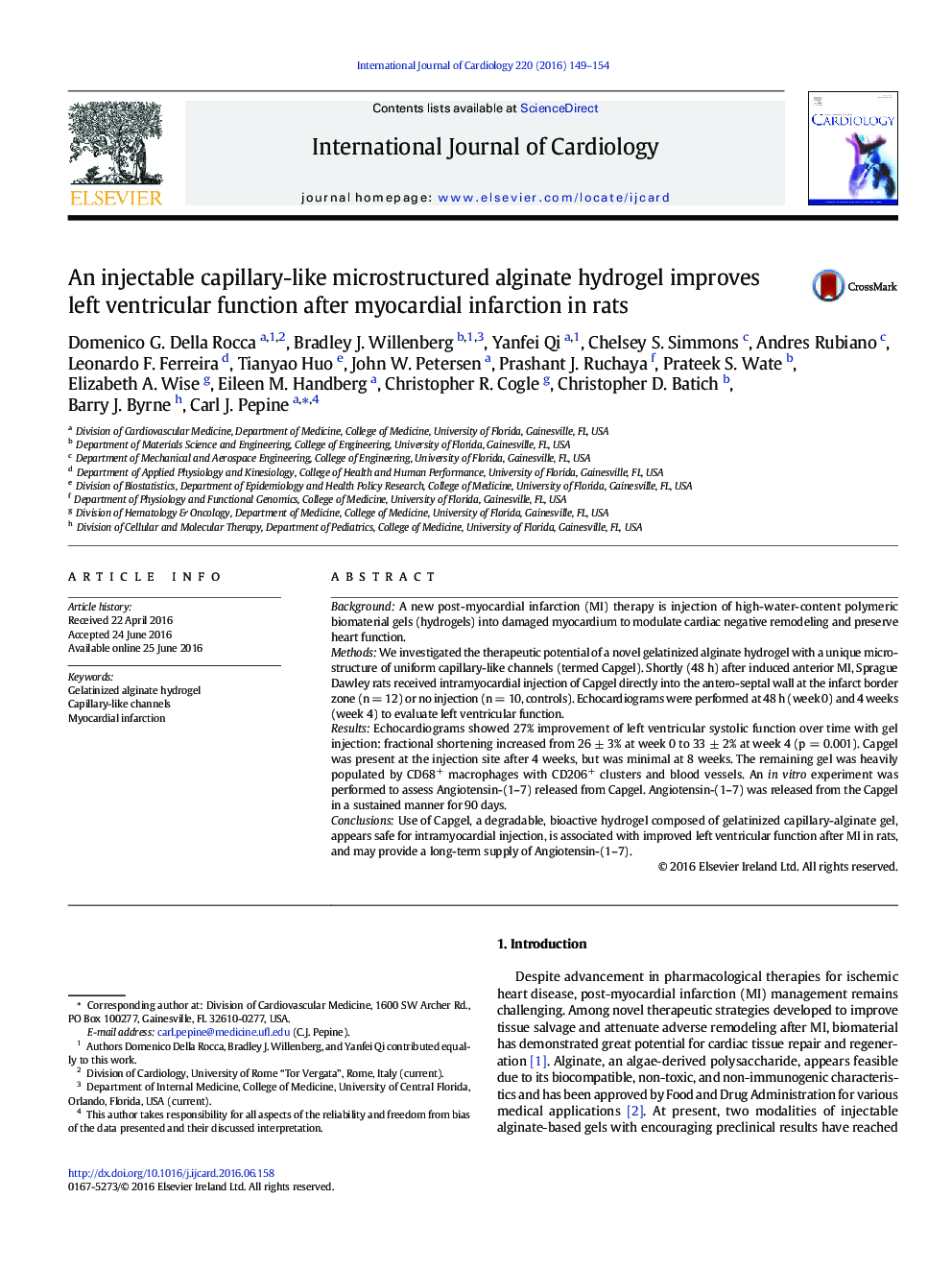| Article ID | Journal | Published Year | Pages | File Type |
|---|---|---|---|---|
| 5963421 | International Journal of Cardiology | 2016 | 6 Pages |
BackgroundA new post-myocardial infarction (MI) therapy is injection of high-water-content polymeric biomaterial gels (hydrogels) into damaged myocardium to modulate cardiac negative remodeling and preserve heart function.MethodsWe investigated the therapeutic potential of a novel gelatinized alginate hydrogel with a unique microstructure of uniform capillary-like channels (termed Capgel). Shortly (48 h) after induced anterior MI, Sprague Dawley rats received intramyocardial injection of Capgel directly into the antero-septal wall at the infarct border zone (n = 12) or no injection (n = 10, controls). Echocardiograms were performed at 48 h (week 0) and 4 weeks (week 4) to evaluate left ventricular function.ResultsEchocardiograms showed 27% improvement of left ventricular systolic function over time with gel injection: fractional shortening increased from 26 ± 3% at week 0 to 33 ± 2% at week 4 (p = 0.001). Capgel was present at the injection site after 4 weeks, but was minimal at 8 weeks. The remaining gel was heavily populated by CD68+ macrophages with CD206+ clusters and blood vessels. An in vitro experiment was performed to assess Angiotensin-(1-7) released from Capgel. Angiotensin-(1-7) was released from the Capgel in a sustained manner for 90 days.ConclusionsUse of Capgel, a degradable, bioactive hydrogel composed of gelatinized capillary-alginate gel, appears safe for intramyocardial injection, is associated with improved left ventricular function after MI in rats, and may provide a long-term supply of Angiotensin-(1-7).
